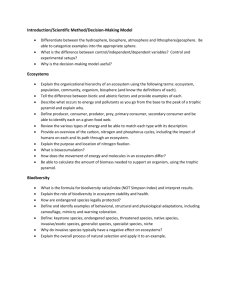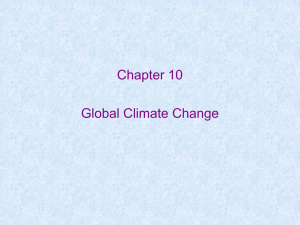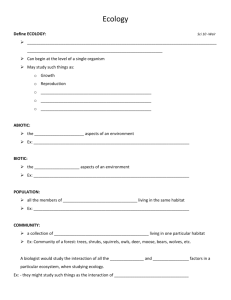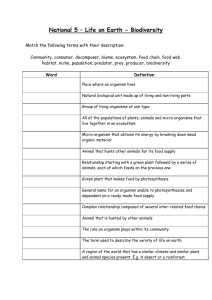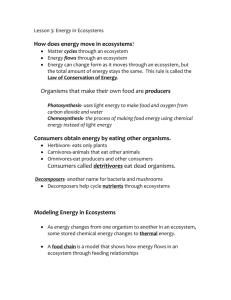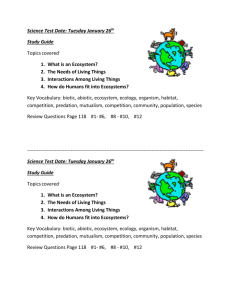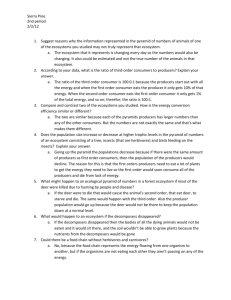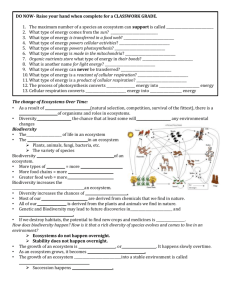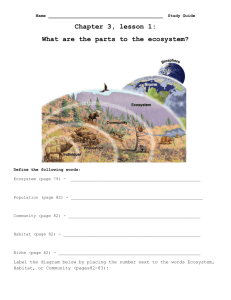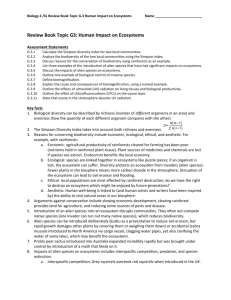Science 10: Ecosystems
advertisement
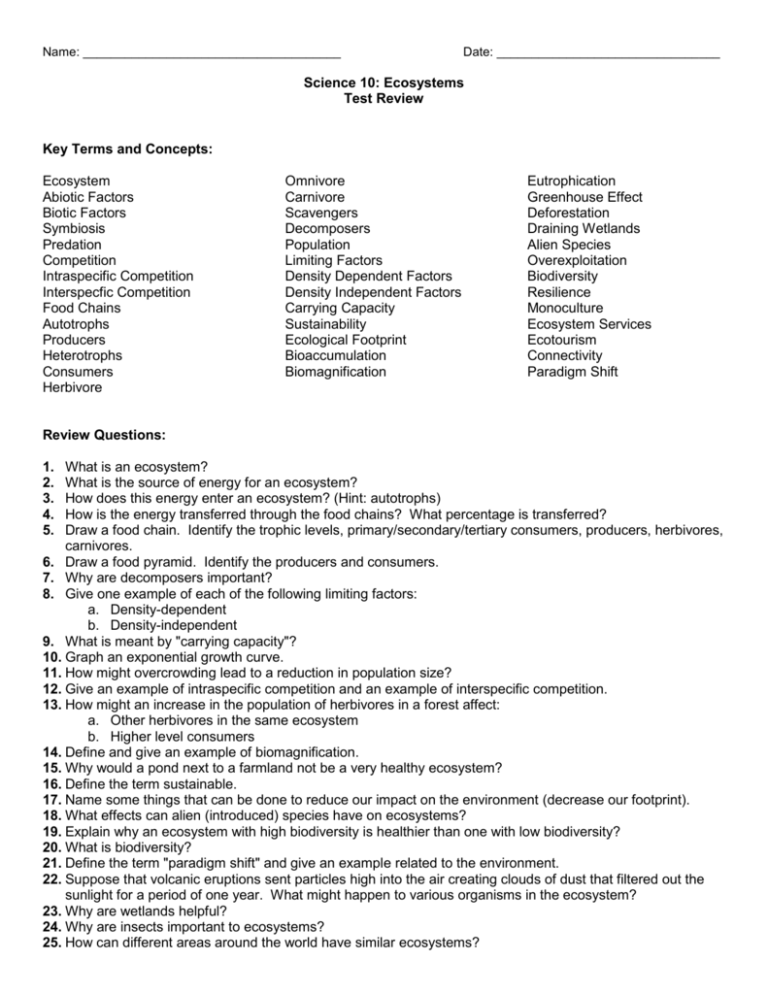
Name: _____________________________________ Date: ________________________________ Science 10: Ecosystems Test Review Key Terms and Concepts: Ecosystem Abiotic Factors Biotic Factors Symbiosis Predation Competition Intraspecific Competition Interspecfic Competition Food Chains Autotrophs Producers Heterotrophs Consumers Herbivore Omnivore Carnivore Scavengers Decomposers Population Limiting Factors Density Dependent Factors Density Independent Factors Carrying Capacity Sustainability Ecological Footprint Bioaccumulation Biomagnification Eutrophication Greenhouse Effect Deforestation Draining Wetlands Alien Species Overexploitation Biodiversity Resilience Monoculture Ecosystem Services Ecotourism Connectivity Paradigm Shift Review Questions: 1. 2. 3. 4. 5. What is an ecosystem? What is the source of energy for an ecosystem? How does this energy enter an ecosystem? (Hint: autotrophs) How is the energy transferred through the food chains? What percentage is transferred? Draw a food chain. Identify the trophic levels, primary/secondary/tertiary consumers, producers, herbivores, carnivores. 6. Draw a food pyramid. Identify the producers and consumers. 7. Why are decomposers important? 8. Give one example of each of the following limiting factors: a. Density-dependent b. Density-independent 9. What is meant by "carrying capacity"? 10. Graph an exponential growth curve. 11. How might overcrowding lead to a reduction in population size? 12. Give an example of intraspecific competition and an example of interspecific competition. 13. How might an increase in the population of herbivores in a forest affect: a. Other herbivores in the same ecosystem b. Higher level consumers 14. Define and give an example of biomagnification. 15. Why would a pond next to a farmland not be a very healthy ecosystem? 16. Define the term sustainable. 17. Name some things that can be done to reduce our impact on the environment (decrease our footprint). 18. What effects can alien (introduced) species have on ecosystems? 19. Explain why an ecosystem with high biodiversity is healthier than one with low biodiversity? 20. What is biodiversity? 21. Define the term "paradigm shift" and give an example related to the environment. 22. Suppose that volcanic eruptions sent particles high into the air creating clouds of dust that filtered out the sunlight for a period of one year. What might happen to various organisms in the ecosystem? 23. Why are wetlands helpful? 24. Why are insects important to ecosystems? 25. How can different areas around the world have similar ecosystems?

